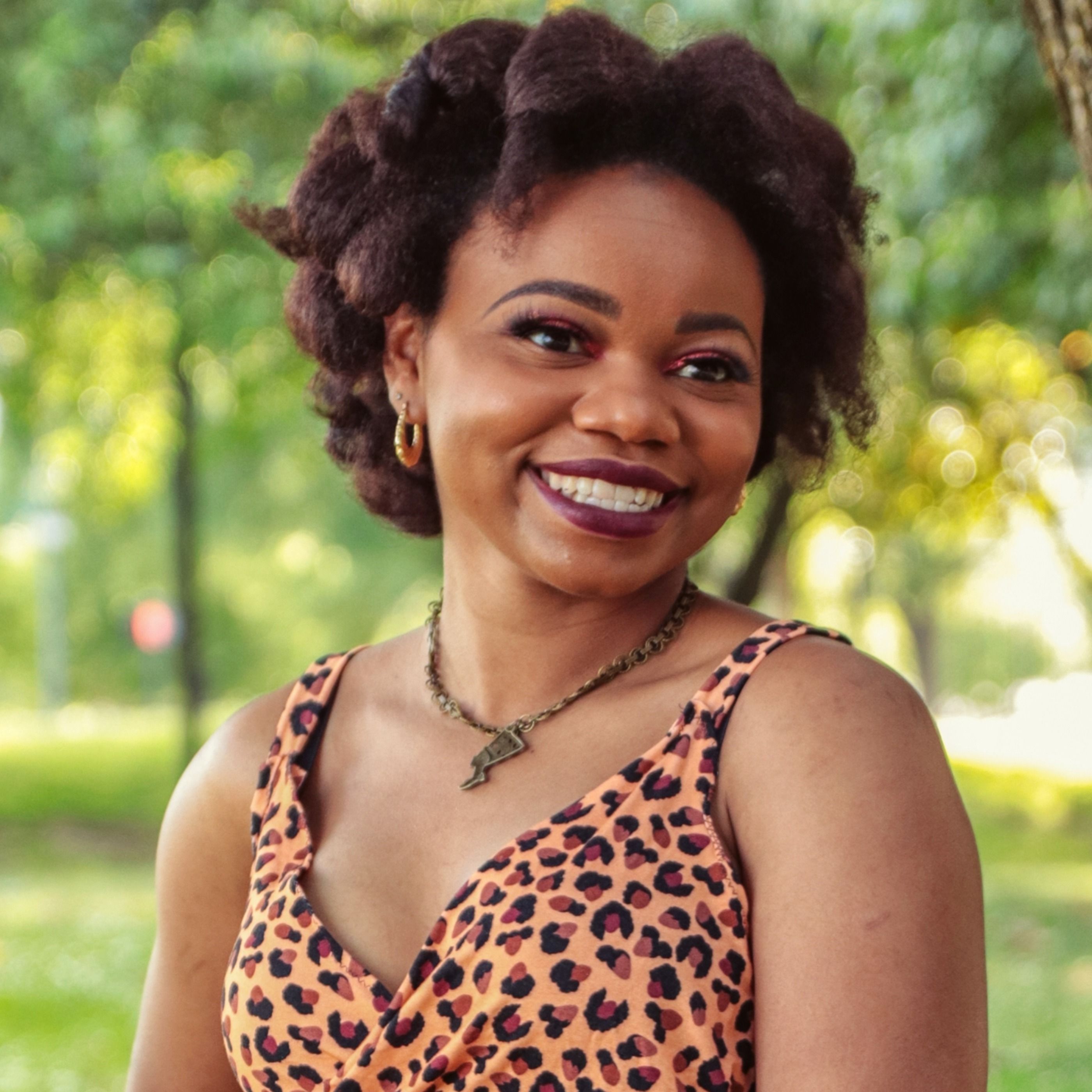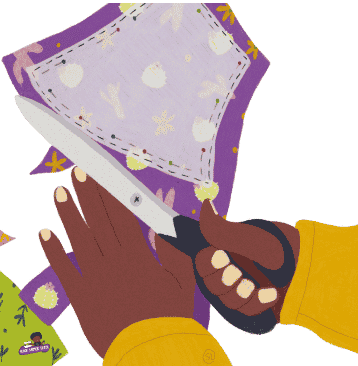Latrice Sampson Richards LPC-S, CLC is a Mental and Emotional Wellness Creative, Podcast Host & Producer, and CEO of STS Productions. Learn more about Latrice and her work here.
Lisa Woolfork
Lisa Woolfork is an associate professor of English specializing in African American literature and culture. Her teaching and research explore Black women writers, Black identity, trauma theory, and American slavery. She is the founder of Black Women Stitch, the sewing group where Black lives matter. She is also the host/producer of Stitch Please, a weekly audio podcast that centers Black women, girls, and femmes in sewing. In the summer of 2017, she actively resisted the white supremacist marches in her community, Charlottesville Virginia. The city became a symbol of lethal resurging white supremacist violence. She remains active in a variety of university and community initiatives, including the Community Engaged Scholars program. She believes in the power of creative liberation.
Insights from this episode:
- Latrice's strategy for engaging content
- Why Latrice enjoys working with the sewing and quilting community
- Latrice's favorite Sew Black interview
- Latrice's reactions to her first QuiltCon
Stay Connected:
Lisa Woolfork
Instagram: Lisa Woolfork
Twitter: Lisa Woolfork
Sign up for the Black Women Stitch quarterly newsletter
Check out our merch here
Leave a BACKSTITCH message and tell us about your favorite episode.
Join the Black Women Stitch Patreon
Check out our Amazon Store
Stay Connected:
YouTube: Black Women Stitch
Instagram: Black Women Stitch
Facebook: Stitch Please Podcast



